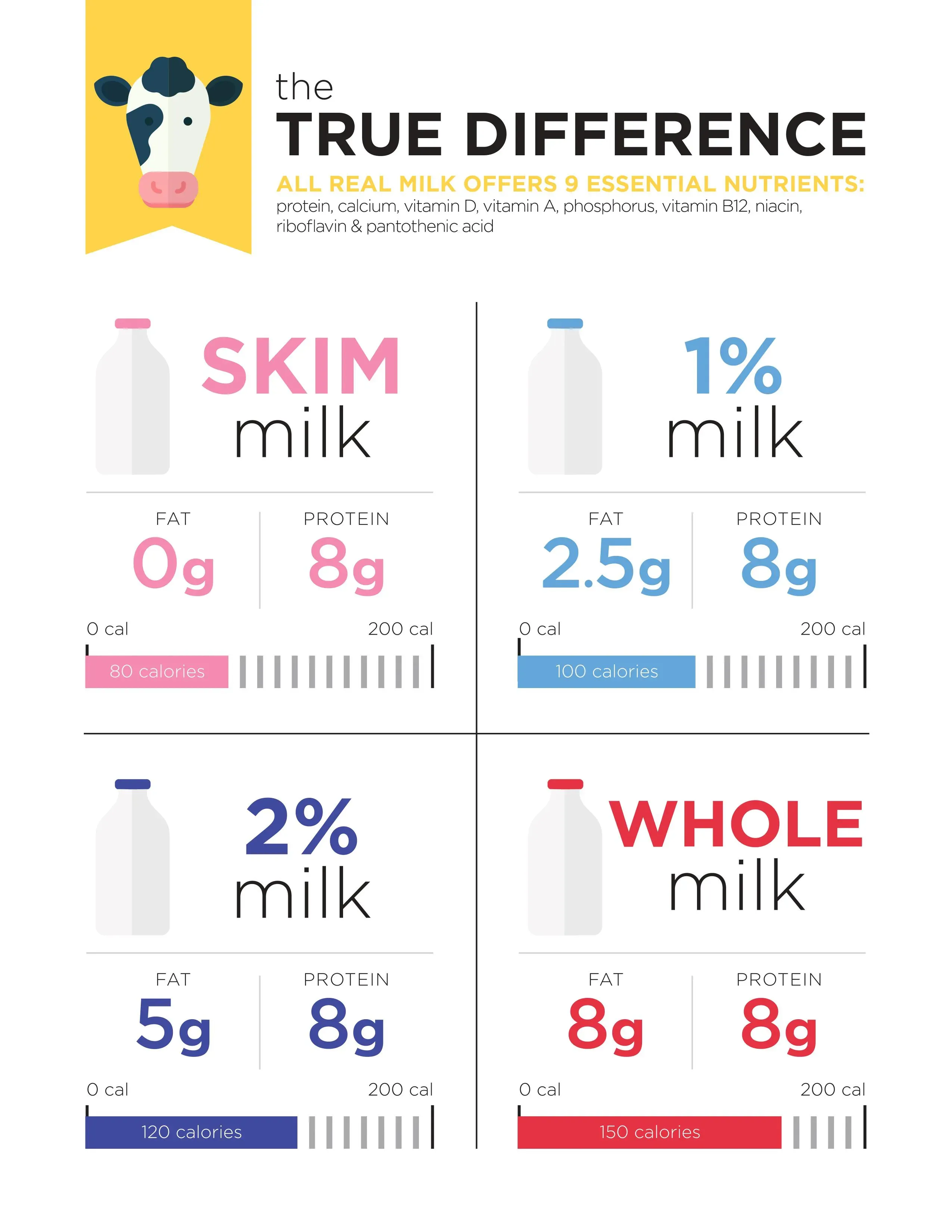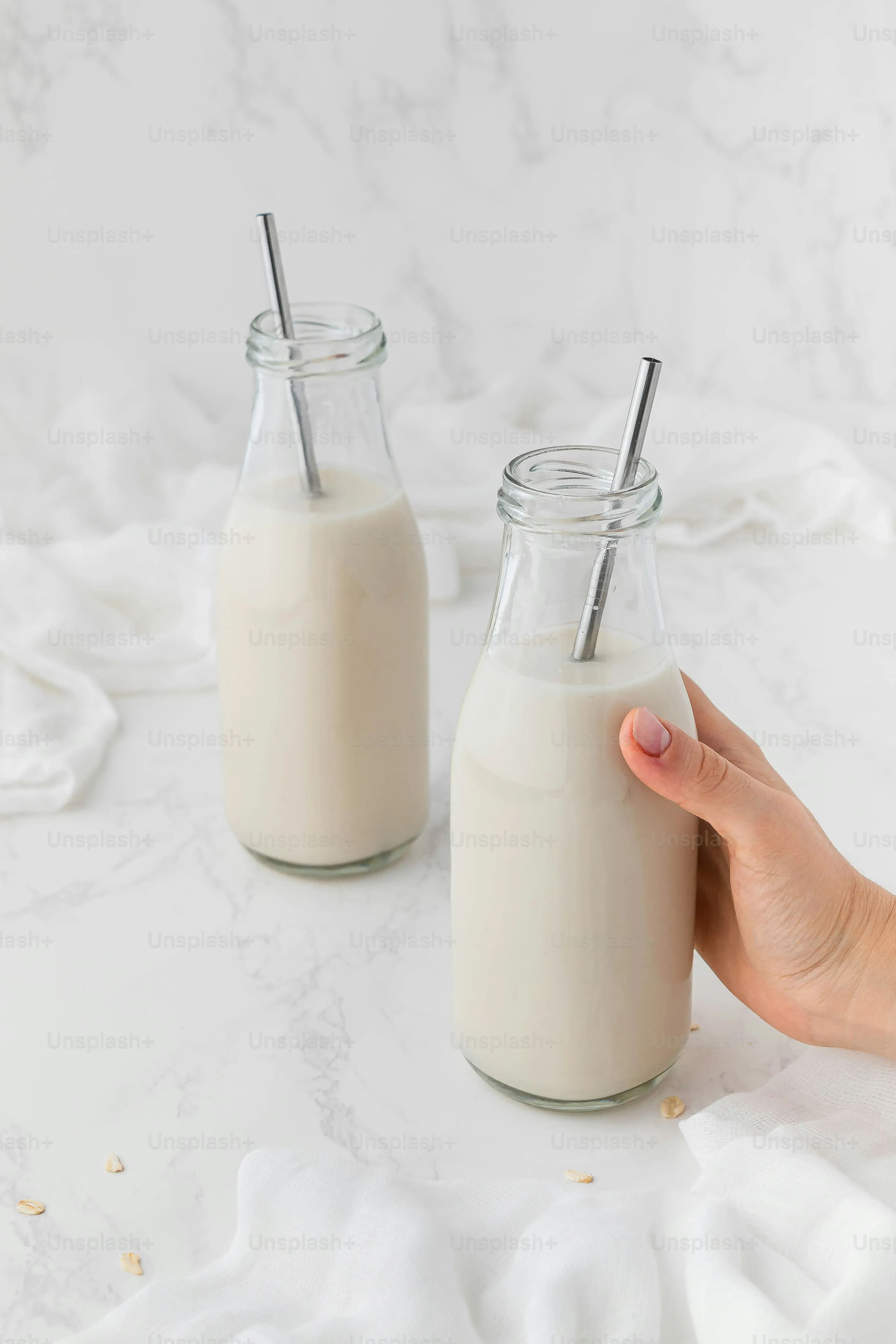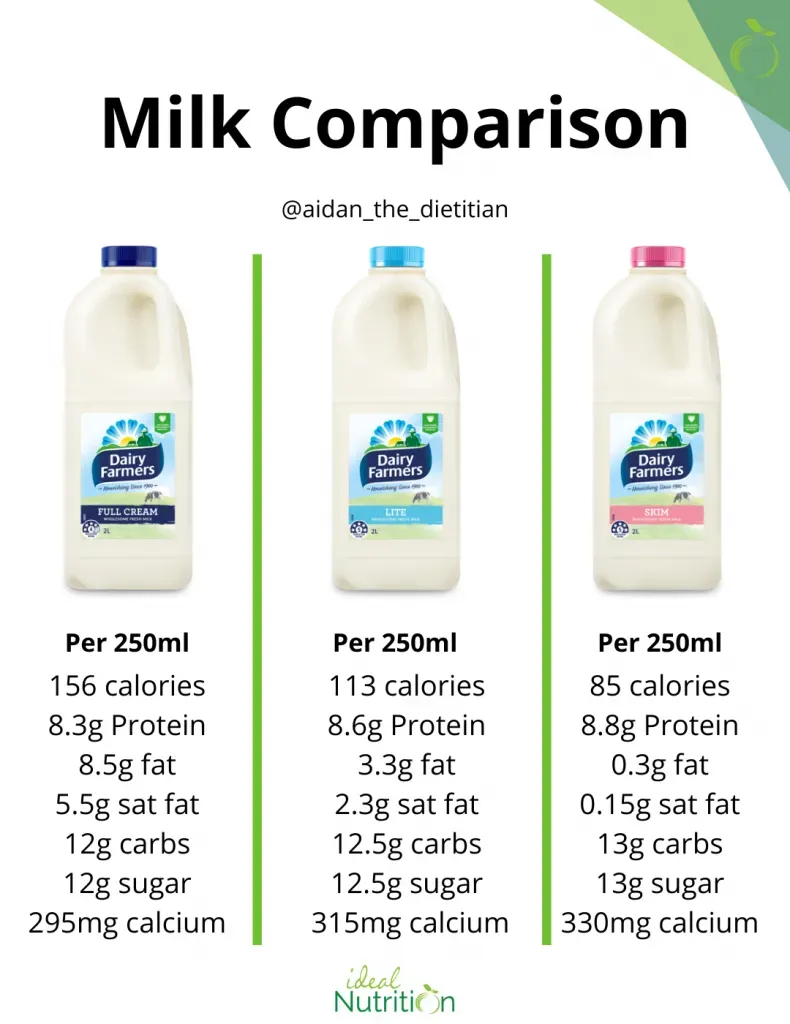Table of Contents
For years, the standard advice felt pretty settled: ditch the whole milk, grab the low-fat or skim. It was all about cutting calories and saturated fat. But lately, you might have noticed headlines suggesting maybe, just maybe, whole milk isn't the dietary villain it was made out to be. This shift has left a lot of folks scratching their heads, wondering, really, is whole milk better than low fat milk? It's a fair question, especially when you're standing in the dairy aisle faced with a dozen different options. The truth is, the conversation around dairy fat has gotten a bit more nuanced than a simple "fat is bad." We're going to dive into what the science actually says today, look at the different types of fat involved, and figure out how to make sense of it all for your own grocery cart and your health goals. Forget the old dogma; let's explore the actual evidence and break down what you need to know about choosing between whole milk and its lower-fat counterparts.
The Great Milk Debate: Is Whole Milk Better Than Low Fat Milk?

The Great Milk Debate: Is Whole Milk Better Than Low Fat Milk?
Remember When Low-Fat Was King?
It wasn't that long ago that if you were trying to eat "healthy," you automatically reached for the skim or 1% milk. Doctors, dietitians, even the cartons themselves seemed to push the low-fat message hard. The idea was simple: less fat, especially saturated fat, meant fewer calories and a lower risk of heart trouble. Whole milk felt like a guilty pleasure, something maybe kids could have, but adults? No way. This widespread belief shaped grocery aisles and breakfast tables for decades, making the question, is whole milk better than low fat milk, seem almost ridiculous to ask aloud.
So, What Changed? The Science Gets Complicated
Fast forward a bit, and the conversation around dietary fat, including dairy fat, started shifting. Researchers began looking closer, not just at individual nutrients like saturated fat in isolation, but at the whole package – how foods are eaten, what they replace in the diet, and the overall dietary pattern. Some studies popped up suggesting that maybe, just maybe, the saturated fat in dairy wasn't acting the same way in the body as saturated fat from, say, a cheeseburger. This sparked a lot of new research and debate, challenging that long-held assumption that low-fat dairy was automatically superior.
It turns out, nutrition science rarely offers simple, black-and-white answers. The human body is a complex system, and food isn't just a collection of macronutrients. Dairy contains protein, calcium, vitamins, and other compounds that might influence how the fat within it affects us. This complexity is really at the heart of the current discussion around whether is whole milk better than low fat milk for everyone.
- The traditional view: Saturated fat in whole milk raises cholesterol, increasing heart disease risk.
- The evolving view: Dairy fat might behave differently; the food matrix matters.
- Key question: Does choosing whole milk negatively impact long-term health outcomes compared to low-fat?
The Dairy Aisle Dilemma Persists
Because the science isn't settled with a resounding "yes" or "no," that confusion in the dairy aisle is understandable. Government guidelines often still lean towards low-fat options, based on established recommendations for limiting saturated fat. Meanwhile, newer research gets reported with headlines that can feel contradictory. Navigating this requires looking beyond the fat content alone and considering your individual needs, overall diet, and what the weight of the evidence suggests right now. It's less about finding a single "better" milk and more about understanding the trade-offs and fitting dairy into a balanced eating plan.
Getting Specific About Fat: It's Not All the Same

Getting Specific About Fat: It's Not All the Same
Beyond the "Saturated Fat is Evil" Mantra
let's get a little technical, but keep it straightforward. For a long time, all saturated fat was lumped together and given a bad rap. The thinking was simple: saturated fat raises LDL ("bad") cholesterol, and high LDL cholesterol increases your risk of heart disease. End of story. But the reality is, fat is a complex molecule, and not all saturated fats are identical. They have different chain lengths and structures, and these subtle differences can potentially influence how our bodies process them. Plus, food isn't just one nutrient; it's a whole package deal with proteins, carbs, vitamins, minerals, and other compounds all interacting.
Think of it like cars. They all have engines and wheels, but a sports car, a truck, and a minivan perform very differently. Lumping all saturated fats together is a bit like saying all vehicles are the same just because they have an engine. The "food matrix" idea suggests that the way these fats are packaged within a specific food, alongside other nutrients, might change their impact on our health compared to eating the same amount of saturated fat in isolation or in a different food context.
Dairy Fat: A Peculiar Character?
This is where the plot thickens regarding whether is whole milk better than low fat milk. Dairy fat is primarily saturated, yes, but it contains a really diverse mix of fatty acids, including some shorter-chain ones. Some researchers hypothesize that this unique mix, combined with the other components in milk (like calcium and certain proteins), might modify how the saturated fat affects cholesterol levels and heart health compared to, say, the saturated fat in processed meats or baked goods. It's not a universally accepted theory, and the effects are likely modest, but it's a key reason the black-and-white view of dairy fat is being challenged.
So, while whole milk definitely has more saturated fat per serving than skim, the question being explored is whether that saturated fat behaves exactly like the saturated fat from other sources. This doesn't give whole milk a free pass, but it adds a layer of complexity to the "low-fat is always better" argument that dominated for so long.
Fat Type | Found In (Examples) | General Impact (Simplified) |
|---|---|---|
Saturated Fat | Butter, red meat, cheese, coconut oil | Can raise LDL cholesterol (though impact varies by source) |
Monounsaturated Fat | Olive oil, avocados, nuts | Generally considered heart-healthy, can lower LDL cholesterol |
Polyunsaturated Fat | Vegetable oils (sunflower, corn), fatty fish, seeds | Generally considered heart-healthy, includes Omega-3s and Omega-6s |
Trans Fat | Processed foods, some margarines (artificial) | Raise LDL and lower HDL cholesterol (generally harmful) |
What the Guidelines Say About Dairy and Your Heart

What the Guidelines Say About Dairy and Your Heart
so we've talked about how dairy fat is a bit more complex than just "saturated fat equals bad." But when you look at official dietary advice, like the guidelines put out by the U.S. government or organizations focused on heart health, they haven't exactly done a full 180. Generally, these recommendations still lean towards choosing low-fat or fat-free dairy options to limit saturated fat intake as part of an overall healthy eating pattern. The logic is straightforward: saturated fat can raise LDL cholesterol, a known risk factor for heart disease. While research into the nuances of dairy fat continues, the prevailing advice, based on decades of accumulated evidence, is to keep saturated fat in check, ideally limiting it to less than 10% of your daily calories, and even lower (5-6%) if you have existing heart issues. This is really the core of What the Guidelines Say About Dairy and Your Heart right now – a cautious approach based on the established link between saturated fat and cholesterol, even as scientists explore the finer points of food composition.
Finding Your Dairy Balance: Practical Tips for Choosing Milk

Finding Your Dairy Balance: Practical Tips for Choosing Milk
Finding Your Dairy Balance: Practical Tips for Choosing Milk
Alright, so after wading through the history of low-fat dogma and the slightly confusing science about dairy fat, you're probably still standing there in the grocery store, staring at the milk cartons, wondering what to actually buy.
Forget trying to find a single "perfect" milk.
Finding Your Dairy Balance: Practical Tips for Choosing Milk means looking at your whole diet, your personal health needs, and what you actually enjoy.
If you love the taste and texture of whole milk and it helps you feel satisfied, and your overall diet is filled with vegetables, fruits, and lean proteins, a glass here and there probably isn't going to derail your health.
On the flip side, if you're actively managing your saturated fat intake for heart health or weight, sticking mostly to low-fat or skim is a straightforward way to cut those grams.
Maybe you mix it up, using skim in your coffee but enjoying full-fat yogurt.
It's less about an all-or-nothing rule and more about conscious choices that fit your life.
Reading labels helps, aiming for around 3 grams of saturated fat per serving for most foods is a decent benchmark if you're tracking.
So, Is Whole Milk Better? It's Complicated (Surprise!)
After sifting through the evidence, the simple answer to "is whole milk better than low fat milk?" remains elusive. What's clear is the old black-and-white view of dairy fat is outdated. While saturated fat still warrants attention, focusing solely on whether your milk is whole or skim misses the bigger picture: your overall diet. Moderation with full-fat options seems less problematic than once thought, especially when balanced with plenty of fruits, vegetables, and lean proteins. Don't agonize over one glass of milk; consider your entire day's food intake. Read labels, understand your personal health needs, and remember that dietary advice continues to evolve.
